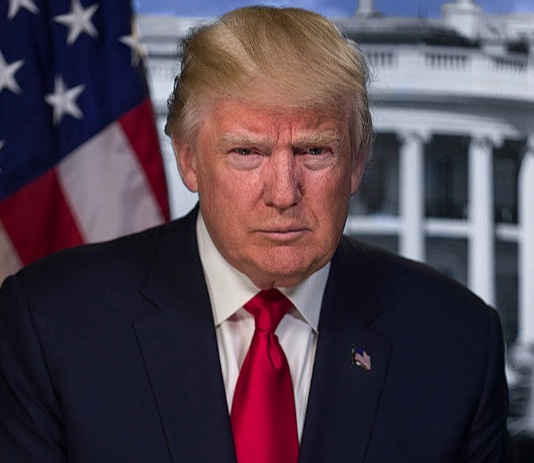by Domenico Maceri * –
SAN LUIS OBISPO (USA). “It was a brilliant stroke.” With these words Donald Trump congratulated Vladimir Putin last year immediately after the start of the war in Ukraine. The 45th president would have liked it if after a few weeks the war had ended with the destabilization of Volodymyr Zelensky as many expected. The Ukrainian president has not only stood up to Putin but also to Trump, who asked him for a favor in a phone call in September 2019. Before delivering promised American weapons to Ukraine, Trump asked him to announce an investigation into Hunter Biden, son of his opponent in the 2020 presidential campaign. Trump thought Biden’s son’s suspicious dealings might have helped him politically by suggesting corruption of his opponent. Zelensky, who had been elected president only 5 months earlier, refused, despite his almost non-existent political experience. News of the phone call sparked a House investigation that resulted in the first of Trump’s two impeachments.
Historically the Republican Party has been very anti-Russian, driven by fear of Communism. With Trump taking the field in 2016, however, the Republican Party changed its ideology especially due to the good relations between the 45th American president and Vladimir Putin. After a year of war Trump has not changed his mind remaining close to the Russian leader. In addition to his initial comments last year, Trump has indeed upped the ante by recently alleging that Biden’s bad policy was opening the door to World War III. The former president does not support continued funding for Zelensky, but his party, whose personal control has weakened in recent months, remains divided with an inconsistent view on the issue of America’s role in the Russian-Ukrainian conflict.
Ron DeSantis, governor of Florida and Trump’s most serious rival for the 2024 presidential nomination, has remained in the former president’s camp regarding the war in Ukraine. DeSantis said he does not support funding Zelensky, saying Russia will not invade NATO nations. For the governor of Florida, the Russians have revealed themselves to be a “third-rate” military power. Also in Trump’s camp are two ultra-right lawmakers, Marjorie Taylor Greene of Georgia and Matt Gaetz of Florida. The two sharply criticized Biden accusing him of caring about Ukrainians and not Americans. The Fox News television network is also broadly opposed to military and financial support for Zelensky, even as Rupert Murdoch-owned newspapers support aid to Ukraine.
However, the establishment wing of the Republican Party has distanced itself from Trump and supports support for Ukraine. Mitch McConnell, Senator from Kentucky and Senate Minority Leader, has indicated his adherence to Biden’s policy in defense of Ukraine. McConnell stressed that US investments in Ukraine are not “charity”, but money spent to contain Putin and his political and military ambitions that go beyond Ukraine. He also sends a signal of American determination to China, the US’s other serious rival. Even House Speaker Kevin McCarthy, a Republican from California, has declared his support for Ukraine, while asserting that Zelensky cannot be given a “blank check”. Two other prominent Republicans and probable rivals of Trump in the primaries, Mike Pompeo, former secretary of state of the former president, and Nikki Haley, former governor of South Carolina, have declared their support for Ukraine.
Americans continue to support Biden’s policy in the Russian-Ukrainian conflict, according to a Pew Research Center poll (43% yes, 38% no), figures higher than the approval rating of Biden’s work as president (38% approval). Another poll by the Associated Press informs that 48% of Americans are in favor of continued support for the Ukrainians, however, 12 points less since last May.
The anti-Ukraine campaign of Fox News, Trump and several members of the Republican Party is having its effects. Furthermore, there is a certain tiredness also because there is no way out.
At the moment, only the Chinese plan called “China’s position on the political solution of the Ukrainian crisis” remains: the 12-point plan includes a cease-fire, the refusal of nuclear weapons and the protection of nuclear power plants. Zelensky is expected to meet with Chinese authorities and Putin is also planning direct talks with Chinese leader Xi Jinping. Sergey Radchencko, a Soviet-born British historian, acknowledged this stalemate in a recent article in the Washington Post. However, according to Radchencko, if the stalemate continues, a ceasefire could be reached which would lead to a frozen conflict with no clear winners or losers, as happened in the Korean conflict. In this light, the historian sees a territorially reduced Ukraine that could claim victory for having stopped the Russian invasion. For his part, Putin could disguise the “defeat” in a tactical victory.
* Domenico Maceri, PhD, is professor emeritus at Allan Hancock College, Santa Maria, California. Some of his articles have won awards from the National Association of Hispanic Publications.
